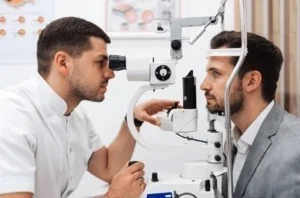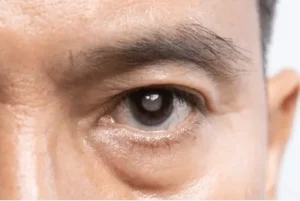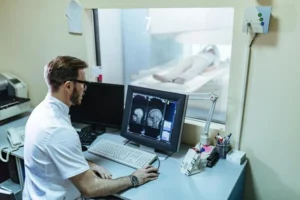Best Oncologists in Mumbai
Looking for world-class cancer care in Mumbai? At One Stop Healthcare Solution, we connect you with the best oncologists offering cutting-edge treatments and compassionate support. Whether it’s a consultation or specialized care, we’re here to guide you to the right expert. Take the first step towards better health—contact us today!
Latest Procedure
Expert Surgeons

Featured Treatments
Find Best Oncologists in Mumbai Near You: Advanced Cancer Care with Compassion
Fighting cancer requires expert oncology care and unwavering support. At One Stop Healthcare Solution, we connect you with the best oncologists in Mumbai, ensuring access to top oncology providers and state-of-the-art cancer treatment centers. Whether you’re looking for clinical oncology specialists, a holistic oncologist, or a physician oncologist for a second opinion, we help you find the right expert for your needs.
From early diagnosis to personalized treatment plans, including onco surgery, advanced chemotherapy, radiation therapy, and immunotherapy, our network of top oncologists in Mumbai offers cutting-edge treatments with compassionate care.
If you’re searching for an oncologist near my location or need an oncologist online consultation, we make it easy for you to access world-class cancer care from the comfort of your home.
Don’t let cancer wait—take the first step toward recovery with One Stop Healthcare Solution today!
Request a Call Back
Our Oncology Treatments In Mumbai Includes:
With expert oncologists and advanced protocols, we ensure precise treatment plans while minimizing side effects to enhance your comfort and quality of life.
Chemotherapy involves the use of powerful anti-cancer drugs to target and kill rapidly growing cancer cells.
- Customized Treatment Protocols: Plans tailored to the type, stage, and progression of your cancer.
- Side Effect Management: Expert support to minimize nausea, fatigue, and other side effects.
- Combination Therapy: Often paired with surgery or radiation for enhanced effectiveness.
Best For: Breast cancer, lung cancer, colon cancer, leukemia, lymphoma, and more.
Radiation therapy utilizes high-energy rays to target and eliminate cancer cells. We connect you to centers equipped with the latest technologies like IMRT, IGRT, and 3D-CRT, ensuring accurate and effective treatments.
Radiation therapy delivers high doses of radiation to shrink tumors and destroy cancer cells while sparing healthy tissues.
- Advanced Technologies: Access to IMRT (Intensity-Modulated Radiation Therapy), IGRT (Image-Guided Radiation Therapy), and Proton Therapy.
- Precision Treatment: Tailored plans to target cancer with millimeter accuracy.
- Quick Sessions: Outpatient treatments with minimal disruption to daily life.
Best For: Brain tumors, head and neck cancer, prostate cancer, and more.
Harnessing the power of your immune system, immunotherapy boosts your body’s natural defenses to fight cancer. Get access to cutting-edge treatments that have revolutionized cancer care.
- Checkpoint Inhibitors: Blocking proteins that stop the immune system from attacking cancer.
- CAR-T Cell Therapy: Modifying T-cells to effectively fight cancer.
- Long-Term Benefits: Boosting immunity for sustained protection.
Best For: Melanoma, lung cancer, bladder cancer, and other immune-responsive cancers.
For conditions like leukemia, lymphoma, and myeloma, bone marrow transplants offer a lifesaving treatment option. We connect you to top-notch facilities specializing in autologous and allogeneic transplants.
Also known as stem cell transplantation, this treatment replaces damaged or destroyed bone marrow with healthy cells.
- Autologous Transplants: Using the patient’s own stem cells for recovery.
- Allogeneic Transplants: Using stem cells from a matched donor.
- High Success Rates: Life-saving procedures for blood cancers and severe aplastic anemia.
Best For: Leukemia, lymphoma, multiple myeloma, and immune deficiencies.
This treatment targets specific molecules or genes involved in cancer growth and survival.
- Precision Medicine: Treatments tailored based on genetic testing of the tumor.
- Fewer Side Effects: Minimal impact on healthy cells compared to traditional chemotherapy.
- Advanced Drugs: Access to innovative medications targeting specific cancers.
Best For: Breast cancer (HER2-positive), lung cancer, chronic myeloid leukemia, and more.
For cancers like breast and prostate cancer, hormone therapy helps slow or stop cancer growth by blocking hormone production. Specialists in our network provide advanced treatment strategies customized to your needs.
Hormone therapy reduces or blocks hormones that fuel certain cancers, such as estrogen or testosterone.
- Personalized Protocols: Hormonal blockers or suppressors tailored to individual needs.
- Combination Therapies: Often used with surgery, radiation, or chemotherapy.
- Effective for Hormone-Sensitive Cancers: Slowing growth or recurrence of cancer.
Best For: Breast cancer, prostate cancer, and endometrial cancer.
Surgical intervention involves the removal of tumors and affected tissues to stop the spread of cancer.
- Minimally Invasive Techniques: Laparoscopic or robotic surgeries for quicker recovery and less scarring.
- Curative Intent: Removing the tumor entirely in early-stage cancers.
- Reconstructive Options: Restoring appearance and function post-surgery.
Best For: Solid tumors like colorectal, breast, liver, and lung cancers.
From minimally invasive techniques to complex tumor removals, our expert surgeons specialize in procedures that prioritize precision and faster recovery.
We understand the importance of holistic care, which is why we offer comprehensive palliative care services to improve the quality of life for patients undergoing treatment, focusing on pain management and emotional support.
Palliative care focuses on improving the quality of life for patients and their families during treatment.
Best For: Patients at all stages of cancer, particularly advanced or terminal cases.
Leading Cancer Treatment in Mumbai, India at One Stop Healthcare Solution
Cancer care demands precision, innovation, and compassion. At One Stop Healthcare Solution, we bring you the most advanced cancer treatment approaches in Mumbai, combining cutting-edge medical expertise with personalized care. Our mission is to simplify your journey by connecting you with Mumbai’s top oncologists and leading cancer care facilities, ensuring you receive the best possible outcomes.
Find The Best Oncology Centers in Mumbai with One Stop Healthcare Solution
Finding the best oncology centers in the world for treatment is crucial for effective cancer care. Cancer care demands precision, innovation, and compassion. At One Stop Healthcare Solution, we bring you the most advanced cancer treatment approaches in Mumbai, combining cutting-edge medical expertise with personalized care. One Stop Healthcare Solution connects you with the best oncology hospitals in Mumbai, offering:
1. State-of-the-art cancer treatment facilities
2. Latest advancements in clinical oncology
3. Experienced specialists in specialty oncology
For the best oncologists in Mumbai near me, reach out to us today.
Get The Best Oncology Treatment in Mumbai, India
01

Medical Oncology Program
Our medical oncology team offers patient-focused treatments, combining traditional chemotherapy with advanced immunotherapy and targeted therapies. We prioritize safety, using advanced methods to manage side effects and maintain a high quality of life. For those not suitable for active treatment, our palliative care offers comfort and relief.
02

Radiation Oncology Program
We use advanced equipment and imaging like CT, MRI, and PET-CT scans for precise cancer treatment. Techniques such as IMRT, SBRT, and IGRT ensure targeted radiation, minimizing damage to healthy tissue for effective results.
03

Surgical Oncology Program
Our surgical oncologists perform personalized surgeries, using minimally invasive techniques when possible to reduce recovery time. Whether it’s tumor removal or complex procedures, we ensure high-quality care and support for smooth post-operative recovery.
04

Robotic Surgery Program
Robotic-assisted surgery improves precision and reduces discomfort. With smaller incisions and reduced complications, patients experience quicker recovery. This program covers various cancer types, including head, neck, thoracic, gynecological, and urological cancers.
05

Cytoreductive Surgical (CRS) Program
CRS removes visible cancer tissues in advanced abdominal cases and is often paired with HIPEC to improve outcomes and reduce recurrence. Our specialized approach helps patients achieve better long-term results and quality of life.
06

Cancer Reconstructive Surgery Program
Reconstructive surgery restores appearance and function after treatment. Our team uses microvascular techniques to repair damage, ensuring optimal outcomes that support emotional and physical well-being.
07

Haematology & Bone Marrow Transplant Program
We provide comprehensive care for blood and bone marrow disorders, using a multidisciplinary approach that includes both autologous and allogeneic transplants. Our care plans help integrate patients back into their lives, supporting physical and mental recovery.
08

Support Services for Cancer Patients
We offer nutrition services, physiotherapy, and counselling for emotional support. Palliative care focuses on comfort and quality of life, providing compassionate and holistic treatment that fosters hope.
Reasons to Choose Our Oncologists in Mumbai
At One Stop Healthcare Solution, we connect you with top oncologists in Mumbai to provide exceptional, comprehensive cancer care. Here’s why you should choose us:
- Comprehensive Healthcare Services: Access primary care, specialty consultations, diagnostics, and lab services for complete patient care.
- Integrated Technology: Utilize advanced tools like EHR, telemedicine, and online booking for seamless, patient-centric care.
- Expert Multidisciplinary Team: Work with specialists in medical oncology, surgery, radiation, and haematology for personalized treatment plans.
- Patient-Centered Support: Benefit from compassionate care and additional services such as counseling, nutrition, and physiotherapy.
- Advanced Treatment Options: Access the latest cancer therapies, including chemotherapy, immunotherapy, and robotic-assisted surgery.
- Preventive Programs: Participate in wellness initiatives and regular screenings for early detection and ongoing health.
- Seamless Access: Easily book appointments and access consultations with our user-friendly platform and telemedicine options.
Comprehensive Healthcare Services
Integrated Technology
Expert Multidisciplinary Team
Patient-Centered Support
Tele-Health Communication
Preventive Programs
Seamless Access
Schedule Your Consultation Today!
Fight Cancer Together? We’re here to help. Book a Consultation with Our Top Oncologists in Mumbai!
Frequently Asked Questions
Oncologists treat various types of cancer, including breast cancer, lung cancer, prostate cancer, colorectal cancer, blood cancers like leukemia and lymphoma, skin cancer (melanoma), ovarian and uterine cancer, pancreatic cancer, and head and neck cancers. Each type has specific symptoms, treatment protocols, and prognoses.
Medical oncologists are specialists who use medications, such as chemotherapy, targeted therapies, and immunotherapy, to treat cancer. They often lead the treatment plan for the patient and coordinate with other specialists. Surgical oncologists focus on the surgical removal of tumors and may perform procedures such as biopsies and organ removal, depending on the cancer type. Radiation oncologists use high-energy radiation to destroy cancer cells, often in combination with other therapies, for targeted treatment.
Early signs vary by cancer type but common symptoms include unexplained weight loss, persistent pain or swelling, unusual bleeding or discharge, changes in skin appearance or moles, a lump or mass, fatigue, and difficulty swallowing or breathing. Early detection is vital, so it’s important to report unusual symptoms to your doctor promptly.
Diagnosing cancer typically involves a combination of a detailed medical history, physical examination, imaging tests (such as X-rays, CT scans, MRI, and PET scans), blood tests, and a biopsy, which involves taking a small tissue sample for examination under a microscope. Molecular and genetic testing may also be used to tailor treatment plans.
The primary cancer treatments include surgery (removal of the tumor), chemotherapy (using drugs to kill cancer cells), radiation therapy (using high-energy radiation to target tumors), immunotherapy (boosting the body’s immune system to fight cancer), targeted therapy (targeting specific cancer cell mechanisms), and hormone therapy (for hormone-sensitive cancers). The choice of treatment depends on the cancer type, stage, and patient’s overall health.
Success rates depend on factors like the type of cancer, its stage at diagnosis, available treatments, and the patient’s overall health. For example, early-stage cancers generally have higher survival rates than late-stage cancers. Advances in early detection and new therapies have significantly improved outcomes for many cancer types.
Certain cancer treatments, such as chemotherapy and radiation, can impact fertility by affecting the reproductive organs. Patients concerned about fertility should discuss options like sperm or egg freezing with their oncologist before starting treatment to preserve fertility.
Managing side effects involves a combination of preventive measures, supportive therapies, and medications. Staying hydrated, eating nutrient-rich foods, managing stress, taking prescribed medications for nausea or pain, and engaging in physical activities like walking can help alleviate symptoms. Your healthcare team will guide you in developing a personalized plan to handle side effects.
Most patients can continue with regular activities to the extent that their condition allows, but this varies based on the type of treatment and individual health. It’s important to listen to your body and take breaks when needed. Light exercise and maintaining daily routines can help with energy levels and mood.
The duration of cancer treatment can range from a few weeks for some localized treatments to several months or even years for complex cases involving multiple therapies. It depends on the cancer type, stage, and chosen treatment plan. Treatment is often combined with periods of rest and follow-up care.
Side effects can vary widely but may include fatigue, nausea, vomiting, hair loss, pain, mouth sores, changes in appetite, and reduced immunity. Some side effects are temporary, while others, like infertility or heart damage, may be long-term. Supportive therapies and medications can help mitigate these effects.
While not all cancers can be prevented, many risk factors can be managed to lower your chances. Avoiding tobacco, limiting alcohol, maintaining a healthy weight, eating a balanced diet, staying physically active, and protecting skin from excessive sun exposure can all contribute to cancer prevention. Vaccines like the HPV vaccine can also prevent certain types of cancer.
Palliative care is specialized medical care that focuses on providing relief from symptoms and improving the quality of life for patients with serious illness, including cancer. Unlike curative treatments, palliative care addresses physical, emotional, and spiritual well-being without aiming to cure the disease. It can be combined with curative treatments to enhance overall patient comfort.
Robotic-assisted surgery is a highly effective, minimally invasive approach for many types of cancer, including head and neck, lung, prostate, thyroid, and gynecological cancers. It offers benefits such as smaller incisions, less blood loss, faster recovery, and reduced pain compared to traditional open surgery, all while allowing surgeons greater precision and control.
Clinical trials play a critical role in testing new treatments, drugs, and therapies. They offer patients access to innovative treatments that may not yet be available outside the study, potentially leading to better outcomes. Clinical trials are closely monitored to ensure safety and effectiveness, contributing to advances in cancer care.
Comprehensive support services may include counseling for emotional support, nutritional guidance for maintaining a healthy diet, physiotherapy for physical rehabilitation, patient and family education, and palliative care for symptom management. Support groups and therapy sessions can also provide emotional comfort and connect patients with others going through similar experiences.
Cancer treatment costs vary widely based on the type of cancer, stage, location, and specific therapies used. Patients should discuss treatment plans, insurance coverage, and out-of-pocket costs with their healthcare providers. Some facilities offer financial counseling and assistance programs.
Immunotherapy is a treatment that harnesses the body’s immune system to fight cancer by enhancing or mimicking its natural defenses. This approach is particularly effective for cancers like melanoma, non-small cell lung cancer, and certain types of leukemia. It can lead to long-lasting responses and has fewer side effects compared to traditional treatments.
Prognosis varies based on the type of cancer, its stage, and how early it is detected. For instance, early-stage cancers such as some breast and skin cancers have high survival rates, while advanced-stage cancers may have more challenging outcomes. Advances in treatment options, including personalized and targeted therapies, are improving prognoses for many types of cancer.
Other Specialties

Proctology
Care for conditions like hemorrhoids, anal fissures, and other rectal issues. It includes diagnosis, minimally invasive procedures, and follow-up care for comfort and recovery.

Orthopedic Treatment
Treatment for joint pain, bone fractures, and muscle problems. It includes tests, non-surgical options, and surgical treatment if needed.

ACL Injury
Care for ACL injuries with treatments like physical therapy, arthroscopic surgery, and ligament reconstruction. It includes diagnosis, personalized treatment plans for full recovery.

Spine Surgery
Surgery for back problems like herniated discs and scoliosis. It includes consultations, surgery, and follow-up care for recovery.

Hip Replacement
Advanced surgery options to fix hip pain and improve mobility. It includes pre-surgery care, surgery, and post-treatment support.

Ligament Tear
Treatment options for torn ligaments, including surgery and therapy. It includes diagnosis, surgery, and rehabilitation for healing.

Ophthalmology
Treatments for vision problems, eye diseases, and regular check-ups. It includes eye exams, treatments, and surgeries for better eye health.

Cataract Surgery
Safe cataract removal surgery for clearer vision. It includes eye tests, surgery, and post-surgery care to help you see better.

LASIK
LASIK surgery for clearer, glasses-free vision. It includes eye tests, laser treatment, and post-surgery care.

Oncology
Treatment for different types of cancer, including surgery, chemotherapy, and radiation. It includes diagnosis, treatment plans, and patient support.

Kidney Stones
Treatment for kidney stones, including laser surgery and other methods. It includes diagnosis, treatment, and recovery support.

Hernia
Care for hernia conditions with treatments like laparoscopic surgery, open repair, and mesh repair includes diagnosis, treatment plans, and post-surgical support for a smooth recovery.

Varicose Vein
Treatments like laser therapy, sclerotherapy, and surgery to improve circulation and ease discomfort. It includes diagnosis, treatment plans, and support before and after treatment.

Knee Replacement
Experience advanced knee replacement surgery with our expert orthopedic surgeons. Trust us for comprehensive care and personalized treatment plans tailored to your needs.

Gall Stone Treatment
Our specialized team offers effective solutions for gallstones, including minimally invasive procedures to remove stones and alleviate discomfort.

Health Checkup in Mumbai
We provide comprehensive health checkup in Mumbai with thorough evaluations, including essential screenings and diagnostic tests, to detect potential health issues early.

Home Health Care Service
Enjoy professional healthcare in the comfort of your home, including nursing care, physiotherapy, and medical assistance.

